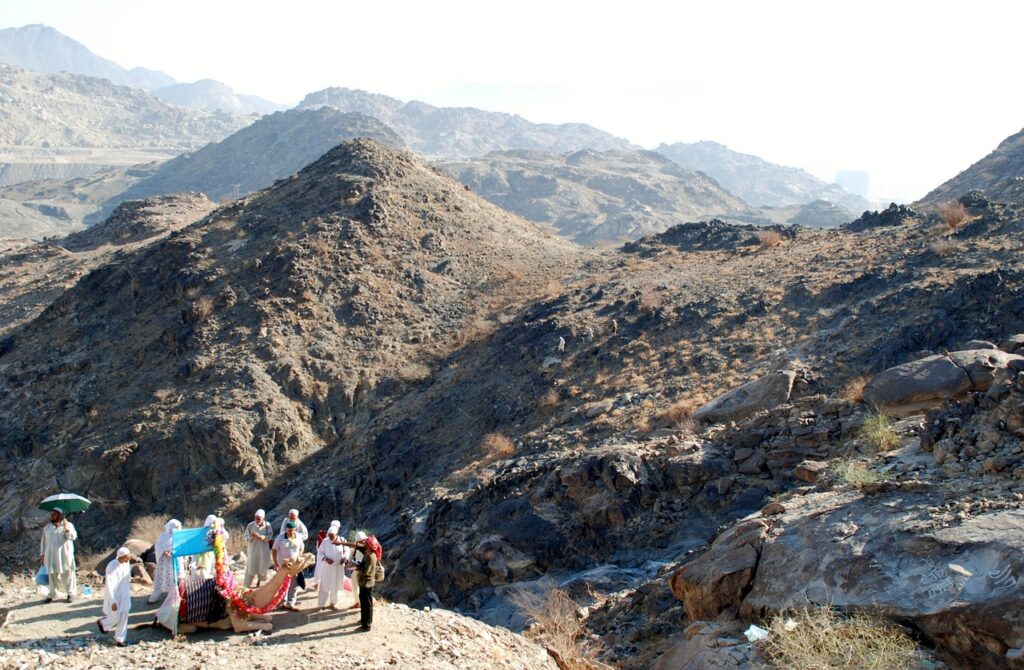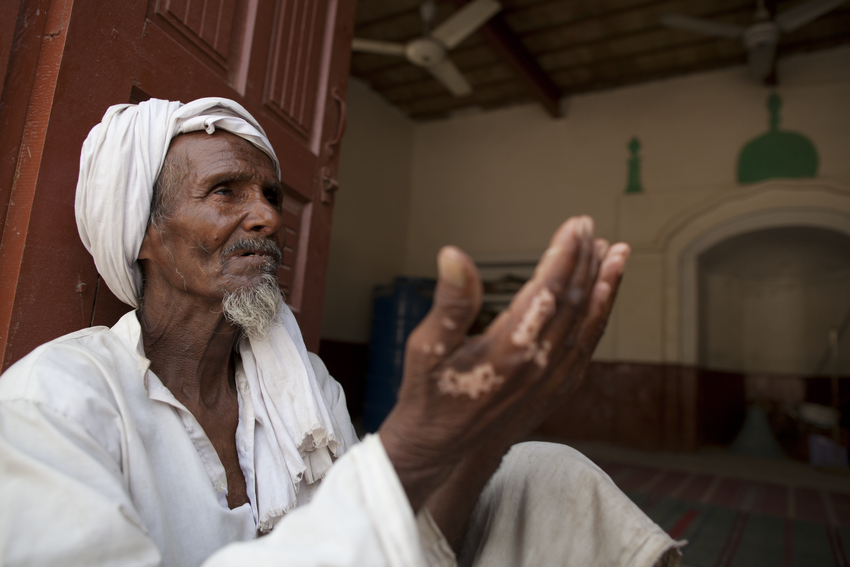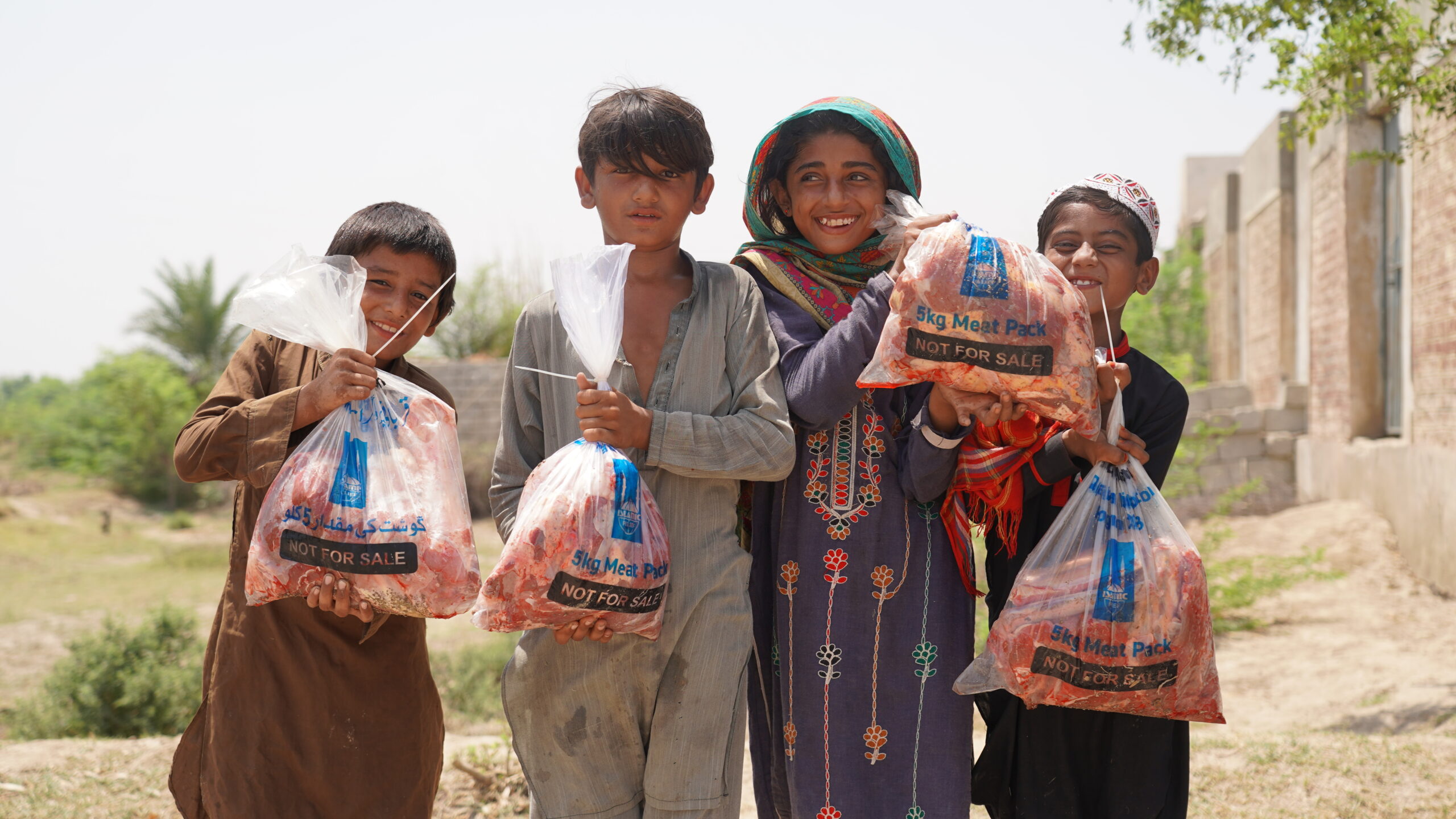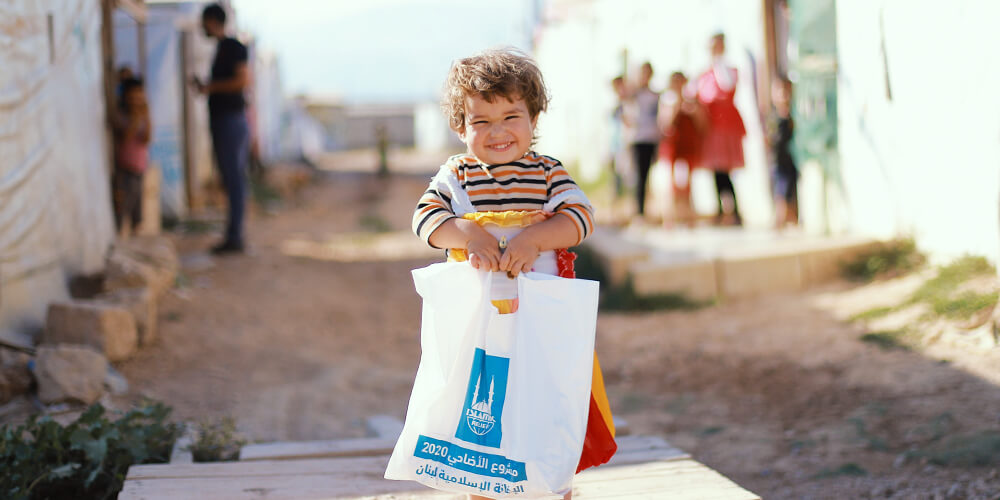
04.30.24
When is the Day of Arafah and Why is it Important?
The Day of Arafah (also spelt Day of Arafat) is on the 9th of Dhul Hijjah, the day before Eid Al Adha. This year, Arafah is expected to fall on Saturday, June 15, 2024.
Arafah is also one of the most important days in the Islamic calendar. As, it was on this day that Allah (SWT) perfected His religion, completed His favours upon His beloved Prophet Muhammad (ﷺ), and approved Islam as a way of life. As Allah (SWT) stated in Surah Al-Ma’idah:
This day I have perfected for you your religion and completed My favour upon you and have approved for you Islam as religion.
Quran 5:3
What is the Day of Arafah?
The Day of Arafah is the 9th day of Dhul Hijjah in the annual Islamic (Hijri) Calendar. It falls on the first 10 days of Dhul Hijjah, which, similar to Ramadan, holds significant meaning in Islam.
In many ahadith, the Prophet (ﷺ) made several references to the importance, virtues and rewards of these blessed 10 days. In one particular hadith, he said:
“No good deeds are better than what is done in these first ten days of Dhul-Hijjah…Not even jihad in the way of Allah, except for a man who goes out with his life and wealth at risk and he returns with nothing.”
Sahih Al Bukhari
The Importance of the Day of Arafah
For Muslims, Arafah is a day of immense divine forgiveness, mercy and blessings. For many of us, we often worry that we fell short during Ramadan. Hence, this day marks another chance for us to improve our character and behaviour and become closer to Allah (SWT).
Arafah is also the day in which the Prophet Muhammad (ﷺ) made his farewell sermon during his final pilgrimage. A day he bore witness that Allah (SWT) perfected His religion, completed His favours upon him, and approved Islam as a way of life.
The Day of Arafah is also known as Yawm Al-Waqf (the Day of Standing). It refers to the fact that pilgrims stand in front of their Lord for long periods of time, asking for His Divine Mercy.
Prophet Muhammad (ﷺ) also said:
There is no day on which Allah frees people from the Fire more so than on the day of ‘Arafah. He comes close to those (people standing on ‘Arafah), and then He reveals before His Angels saying, ‘What are these people seeking.
Sahih Al Muslim
For those performing Hajj, the 5th Pillar of Islam, the Day of Arafah is the most important day.
Hajj is a pilgrimage every financially able and healthy Muslim must make at least once in their lifetime. During the pilgrimage, Arafah marks the essence and heart of it. As the Prophet Muhammad (ﷺ) said: “Hajj is Arafat” (Abu Dawud).
When is the Day of Arafah 2024?
The Day of Arafah is on the 9th day of Dhul Hijjah, the twelfth and final month of the Islamic calendar. This year, it is expected to fall on Saturday 15th June 2024, depending on the sighting of the moon.
As the Islamic calendar is based on the lunar calendar, the Day of Arafah occurs ten days earlier each year.
What to do on the Day of Arafah?
The Day of Arafah is extremely blessed. It is a chance for us to receive more rewards by devoting ourselves to Allah (SWT), seeking His forgiveness and performing many good deeds for His sake.
In turn, these following acts of worship are highly encouraged on the Day of Arafah.
Arafah Rituals During Hajj
After praying Fajr Salah in Mina, pilgrims performing Hajj head to the plains of Mount Arafat. Pilgrims stand on the Plains of Arafat and make lots of Dua, asking Allah (SWT) for forgiveness. They also observe shortened Dhuhr and Asr prayers (two rakat instead of four).

There is also a sermon delivered from Masjid al-Nimra on Mount Arafat. If you are performing Hajj, remember to listen to the khutbah if possible.
Fasting on the Day of Arafah
“The people of knowledge consider it recommended to fast on the Day of ’Arafah, except for those at ‘Arafat’.
Tirmidhi
If one is not performing Hajj, fasting on the Day of Arafah is a way to make the most of the blessed day’s rewards. While fasting on the Day of Arafah is not mandatory, it is highly recommended, according to all Madhabs (schools of thought).
The Prophet (ﷺ) emphasised the great rewards of fasting on the day of Arafah, as stated in this hadith:
“It will expiate the sins of the previous and upcoming years.”
Sahih Muslim
In general, it is also Sunnah for a Muslim to fast on the first nine days of Dhul-Hijjah.
“The Prophet used to fast on the first nine days of Dhul-Hijjah and the day of Ashura, and three days each month, the first Monday of the month and two Thursdays.”
Abu Dawood
Increasing in Acts of Worship
Afarah is the most virtuous day of the year for Muslims. The Day of Arafah is a day of acceptance of dua and Allah (SWT) showers His mercy and forgiveness to those who turn to Him.
Therefore, it is important to increase in our good deeds to make the most of the blessings of the day. Whether we are performing Hajj or at home this year, we can reap rewards by performing acts of worship. This includes devoting ourselves to Dhikr (Remembrance of God), making Istighfaar (seeking forgiving) and seeking nearness to Allah (SWT).

The best acts of worship on this day include offering Nafl (optional) prayers, reading Qur’an and sending Salawat (salutations) upon the Prophet (peace be upon him).
It is also Sunnah to recite the Tahleel (Laa ilaaha il-lal-laah), Takbeer (Allahu Akbar) and Tahmeed (Alhamdulillaah) frequently on the Day of Arafah, and on the days of Eid – 11th, 12th and 13th of Dhul Hijjah. As our Prophet (ﷺ) said:
“There are no days that are greater before Allah or in which good deeds are more beloved to Him than these ten days. So recite a great deal of tahleel, takbeer and tahmeed during them.”
Ahmad
Give Sadaqah
It’s important to remember our brothers and sisters in need across the globe on this blessed day. Giving Sadaqah is one of the most virtuous acts of worship, and giving Sadaqah on this holy day can help us gain blessings.
The Prophet Muhammad (ﷺ) said:
“Sadaqah extinguishes sin as water extinguishes fire”
Timidhi
Remember to Give Qurban for Eid al-Adha
Qurban is obligatory upon every sane Muslim who has wealth in excess of his/her needs. Normally those who are eligible to pay Zakat and Fitrana (Zakat al-Fitr) have to give a Qurban.
If you haven’t given it yet, join us this Dhul Hijjah by donating your Qurban or sending an Eid Gift to a child.


